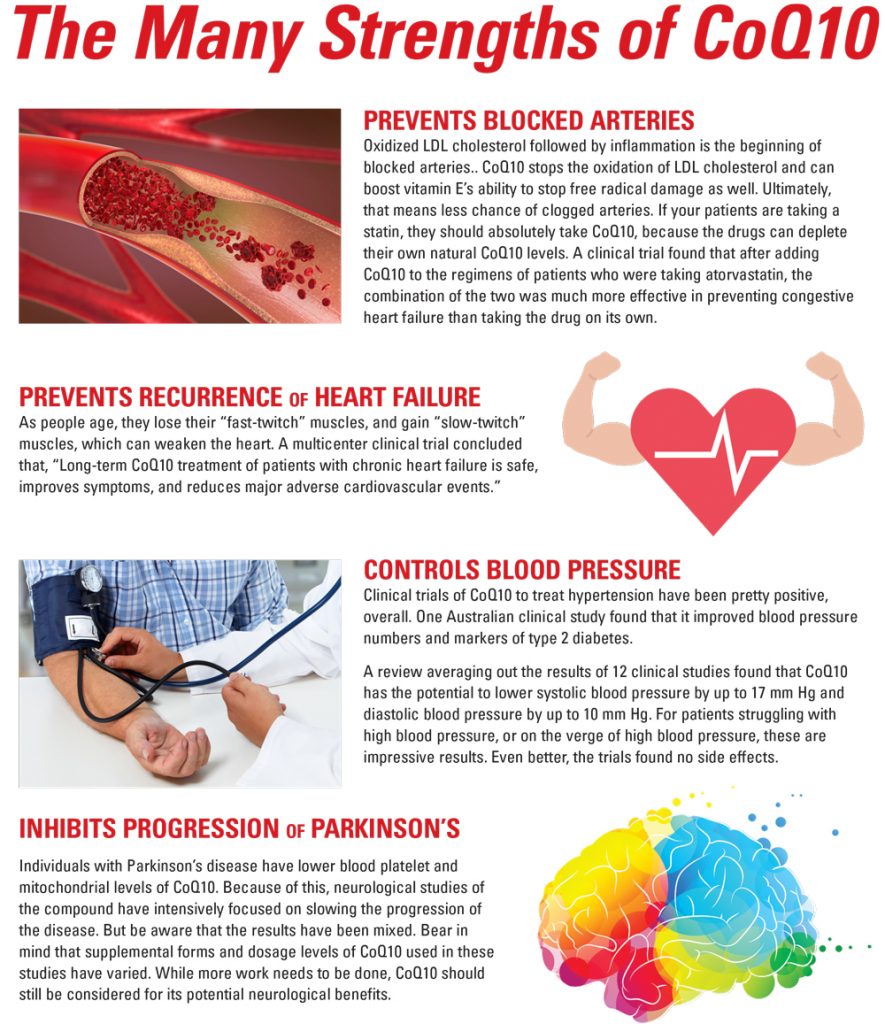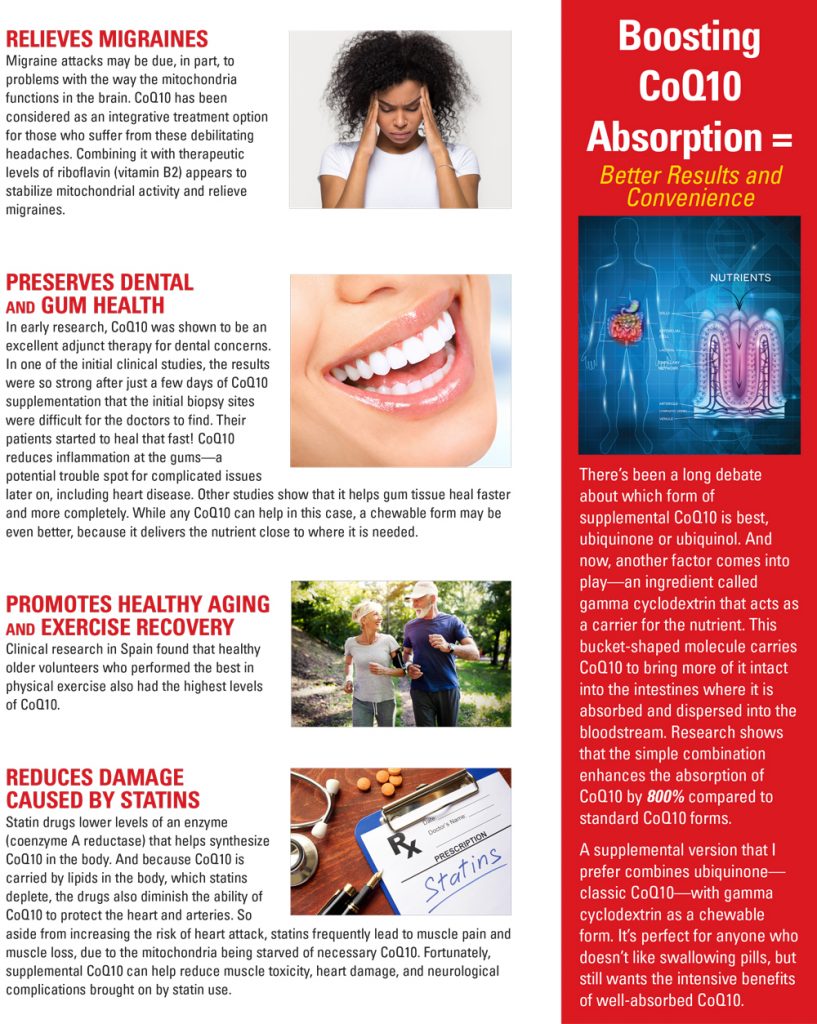Prevent Disease with CoQ10
CoQ10 is present in virtually every cell in the body. But aging, medications, genetics, and strenuous physical activity deplete natural levels of this nutrient. While your patients may have heard about CoQ10, they may not know how to choose an effective supplemental form.
Every patient could – and probably should – add CoQ10 to their daily regimen. It can improve their health in many ways:
- Strengthen heart muscles
- Preserve arteries and blood vessels
- Stop statin drug muscle damage
- Reduce migraines
- Preserve cognitive health
- Promote healthy aging
CoQ10 – The Ubiquitous, Yet Missing, Nutrient
Every one of us, in virtually every cell in our bodies, has microscopic engines called mitochondria, and these engines burn a lot of fuel. That fuel is delivered, and in a sense ignited, by CoQ10.
CoQ10 sparks the process of moving electrons to create adenosine triphosphate (ATP), which powers the body at a microscopic level. The heart, brain, and every energy intensive aspect of the body and mind need a lot of CoQ10 to work at their best.
And even though CoQ10 is found throughout the body, and despite its ubiquitous nature (which is why CoQ10 is known as either ubiquinone or ubiquinol), deficiencies are fairly common.
While your patients have no doubt heard about CoQ10, they may not realize that the body creates CoQ10 in the liver, heart, and pancreas. Additionally, they may also get it from dietary sources and as a fat-soluble nutrient, they are carried by fats.. The top food sources include:
- Fattier fish, including salmon, sardines, and tuna
- Peanuts
- Organ meats
- Whole grains
But it takes a lot of servings of those foods in order to get truly beneficial levels of CoQ10, which is not convenient or realistic. Additionally, CoQ10 levels decline with age, intensive and regular physical activity or stress, prolonged illness, and the use of cholesterol lowering drugs in the statin family. In fact, one of the ways of tracking whether statin drugs are being metabolized in the liver is by noting a reduction in CoQ10 levels. That’s because these medications are HMG Co-A reductase inhibitors, and when this pathway is inhibited, less cholesterol is made. Unfortunately, it is also the same pathway by which CoQ10 is made, so it quickly depletes levels of this critical nutrient. In fact, using a statin drug for even 30 days can lower CoQ10 levels by 51 percent.
And deficiencies are serious. They can lead to dramatic cardiovascular and neurological health complications. Fortunately, supplementation with CoQ10 can help alleviate them, too.


CoQ10 is Essential for Optimal Health and Vitality
CoQ10 deficiency can lead to serious consequences; cardiovascular disease, neurological conditions, breast cancer, fibromyalgia, and other chronic, degenerative conditions. But supplementation can change that. It can help reduce the risk of heart attacks, inhibit cognitive and motor decline, treat diabetic neuropathy, and stop damage throughout the mind and body.


